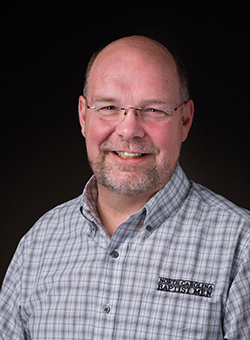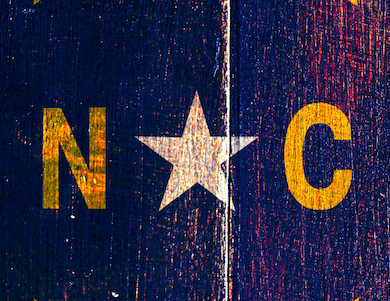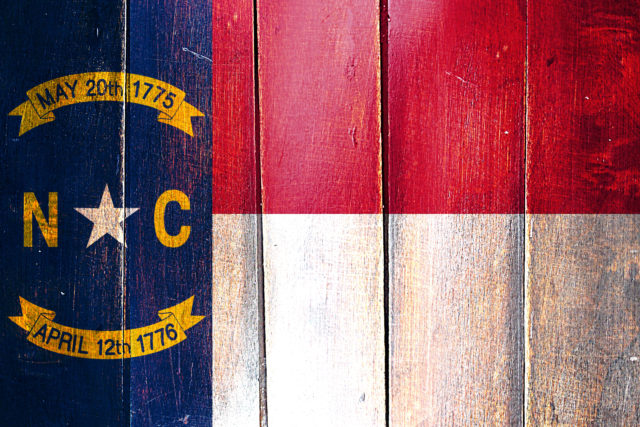Interview by Leland Kerr
Paul Langston, Missions Mobilization Consultant for the North Carolina Baptists, helps churches involve their members in missions through local, state, national, and international projects.
Kerr: You have a lot of different projects at any point in time, including some ramp building projects that have particularly impacted some people’s ability to receive health care.
 Langston: We have a number of them through the year. Dennis Holloway in Richmond County has a team that builds a ramp every week, 50 or 60 a year. They just built a ramp for a young man who has cancer in his legs that is robbing the nutrients from his body. They’ve had fundraisers galore to help pay for his medical treatments, and food, and all the living expenses. The family didn’t have a ramp. They were having to carry him by hand, pick him up and tote him out of the house to receive treatment. They were going as rarely as they could and when they did, it put his mom and dad at risk of injuring themselves. This team built the ramp and now the young has easy access to get in and out of the house and to go have his treatments.There were projects in about 200 different churches that we know of, probably two or three times that many that didn’t report back.
Langston: We have a number of them through the year. Dennis Holloway in Richmond County has a team that builds a ramp every week, 50 or 60 a year. They just built a ramp for a young man who has cancer in his legs that is robbing the nutrients from his body. They’ve had fundraisers galore to help pay for his medical treatments, and food, and all the living expenses. The family didn’t have a ramp. They were having to carry him by hand, pick him up and tote him out of the house to receive treatment. They were going as rarely as they could and when they did, it put his mom and dad at risk of injuring themselves. This team built the ramp and now the young has easy access to get in and out of the house and to go have his treatments.There were projects in about 200 different churches that we know of, probably two or three times that many that didn’t report back.
Kerr: A lot of the ramp building efforts really is for improving someone’s health or making sure they can receive the healthcare that they need.
Langston: Right, the bulk of them is that. There’s one in process right now where the lady goes once a month to her doctors to receive treatments. She has no ramp and it’s three steps high. Her son lays a plywood door down the steps and rolls her down and she says she’s terrified to go down the steps.
Kerr: That’s great! I know a project you’ve been working on just in the last week, tell me about the Bethel Colony of Mercy.
Langston: The Bethel Colony of Mercy is a treatment center for men facing addiction that’s been in existence as a men’s campus in downtown Lenore for 70 years. They recently felt led to expand and begin a women’s campus, a rehabilitation program for drug addiction, and purchased a camp that had been unused for several years about 15 miles outside of Lenore. The camp isn’t in horrendous condition but it wasn’t really usable. The first step was renovating two cabins and making them habitable for women. We’ve put some floors in, did some painting, and replaced toilets, sinks, and vanities with functioning ones.
 The next step is there is to repair the director’s house. Once that’s done, they’re praying to open up October 15 and already have a waiting list for women to come. This is through one of our Impact NC projects. I’ve been told there are 30 some odd centers in North and South Carolina for men, and only five for women. It’s a tremendous area of need. Most of the women’s centers are small, this one will begin with 13 women. A third cabin they’re renovating will allow them to take eight more, bringing it to 28 women. Then they’ve got other buildings on the property so in the coming years they’ll be able to expand further.
The next step is there is to repair the director’s house. Once that’s done, they’re praying to open up October 15 and already have a waiting list for women to come. This is through one of our Impact NC projects. I’ve been told there are 30 some odd centers in North and South Carolina for men, and only five for women. It’s a tremendous area of need. Most of the women’s centers are small, this one will begin with 13 women. A third cabin they’re renovating will allow them to take eight more, bringing it to 28 women. Then they’ve got other buildings on the property so in the coming years they’ll be able to expand further.
Kerr: I understand this will be fairly affordable.
Langston: It’s almost free. They ask the students, that’s what they call them, to pay $250. It’s a 65-day residential program, and everything other than that is through donations.
Kerr: With this growing opioid crisis that’s going to really make an impact.
Langston: It is. We’re working with another ministry in Oxford, the Greater Joy Baptist Church, an African-American church that is planning to build a transitional house for men who have gone through addictions. In the next few months, we’re planning and praying to help them get a building up to allow transitional housing for men who have gone through treatment and are getting their feet back on the ground. Later on they’ll add some housing for women.
Kerr: These projects are happening all over North Carolina, many times they’re well-kept secrets. Disaster relief and recovery have been around a long time with North Carolina Baptist Men and Baptist Home Missions. Often after a hurricane or other disaster hits, people don’t realize what continues after the initial wave we see on television.
Langston: Hurricane Matthew is a good example. It hit North Carolina about two years ago. In the early part, we provided a half million meals and recovery to tear out  several hundred homes. To the ongoing part, we’ve had rebuilds in five sites: Lumberton, Goldsboro, and Windsor, Black River, and Warsaw. We’ve been able to see 260 families and counting move back into their houses after volunteers have worked. We’ve still got sites set up in Goldsboro and Lumberton. Volunteers are working on 20 houses right now in the Lumberton area, and we’ve got a waiting list of homeowners who want help.
several hundred homes. To the ongoing part, we’ve had rebuilds in five sites: Lumberton, Goldsboro, and Windsor, Black River, and Warsaw. We’ve been able to see 260 families and counting move back into their houses after volunteers have worked. We’ve still got sites set up in Goldsboro and Lumberton. Volunteers are working on 20 houses right now in the Lumberton area, and we’ve got a waiting list of homeowners who want help.
A lot of the funding comes early in the process. As soon as a disaster hits people are extremely generous. Like in Lumberton, we’ve been using the generosity people gave primarily two years ago. It’s allowed us to help people and put them back in their homes. Two weeks ago, four projects in Lumberton were completed, and families got to move back home. You’re right, it goes on for a long time.
To learn more about Baptists on Mission or donate, go to www.baptistsonmission.org

